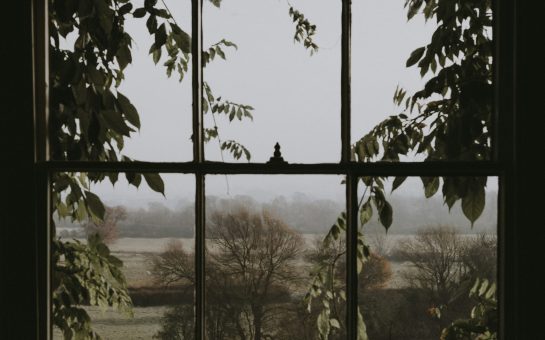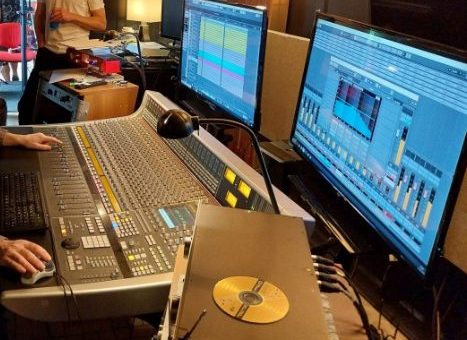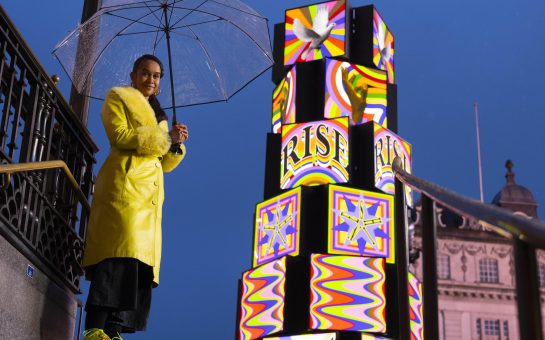We live in an age where love is algorithmic, intimacy is quantified, and technology promises endless connections with a simple swipe through dozens of faces in just a few seconds.
But behind the glow of the screen, some scientists say what keeps us close has less to do with data and everything to do with our biology and creativity.
Across labs and lecture halls, researchers are rethinking what it means to bond. They’re exploring how art, music and even physical wellbeing might be the missing links in our understanding of love itself.
At a time when people are becoming more conscious of their screen time and technology habits, Professor Daisy Fancourt, head of the Social Biobehavioural Research Group at UCL and author of The Art Cure, believes creativity is the cure.
She calls creativity “the forgotten fifth pillar of health” – as vital, she argues, as sleep, exercise, diet and social connection.
Despite the growing body of science on the arts’ influence, she said: “It has remained this rather bizarrely well-kept secret.”
Her research explores how creative expression strengthens social bonds and wellbeing, and how singing evolved as a replacement for grooming behaviours among early humans.
As we evolved as primates, Fancourt said: “Our brains got bigger, we needed other ways of bonding socially within larger groups.”
She believes that shared creative experiences – from singing together to visiting a gallery – trigger the release of endorphins, strengthening intimacy and trust.
“Mechanistically, we know that one of the reasons this happens is through the release of endorphins in the brain,” says Prof Fancourt. “I think that the arts are a really effective way of supporting intimacy.”
And she’s not alone in that belief. Dr Matthew Pywell, a consultant plastic surgeon and longevity specialist at OneLife Longevity, says health and attraction are inseparable.
Art even influences attraction. Fancourt’s research shows that when women are at peak fertility, they tend to rate creative men as more attractive than wealthy or successful ones.
Creativity, she says, “is a display of prowess, a bit like peacock feathers.”
Dr Pywell believes that building strong health foundations as a couple is key to longevity in relationships – an investment in your future selves and children.
“If you’re healthy, you have good genes, you have good procreative ability, and you can therefore be a good father or mother to stick around for a long period in the future,” he said.
But while our screens promise connection, they can flatten it too. Fancourt warns that an online version of intimacy doesn’t engage us in the same way, and says it should amplify in-person connections, not replace them.
“When people are interacting virtually online, it’s a less potent form of interaction compared to when it’s in person.”
She added that social media often rewards the very behaviours that damage genuine connection: “One of the things that gets a lot of attention online is being quite polarised in your opinion – that’s what gets lots of clicks and likes.
“In real life, if you do that, it means you’re less likely to gather friends in a social situation because you’re seen as being too socially strong.”
While social media continues to shape how we see ourselves, Dr Pywell argues that focusing on physical wellbeing rather than aesthetics offers a more lasting route to connection.
“In the past, we’ve tried to cover this up and mask it with aesthetics, injectables, changing how we appear to make ourselves look more attractive,” he said. “Perhaps that wasn’t the best way, because that’s a temporary fix.”
He believes couples investing in their health together can rediscover intimacy, calling it “a phenomenal adjunct alongside something like talking therapy or counselling if a relationship isn’t going to plan.”
If Fancourt sees creativity as the glue that binds, Pywell believes the body itself holds the key — and a newer generation of scientists is even looking to the mind-altering.
For researcher Tommaso Barba at the Centre for Psychedelic Research, love isn’t just emotional – it’s chemical. He’s studying how substances like psilocybin, LSD and MDMA can enhance connection, exploring their effects on bonding and sexual functioning.
“We found that people reported improvements in their sex life up to six months after a psychedelic experience,” said Barba. “It wasn’t just physical – they felt more connected to their partners and better able to communicate desires.”
1/ I really enjoyed presenting a poster investigating the interactions between #psychedelics and serotonergic #antidepressants using prospective survey data at #BAP2023 meeting! 🍄💊 @Imperial_PRG
— Tommaso Barba (@tommaso_barba) July 26, 2023
Below some results (paper in submission): pic.twitter.com/knDDafLGpC
Now, his research is turning to couples directly, tracking relationships before and after psychedelic experiences to see how they evolve.
Barba believes psychedelics can act as intimacy enhancers under the right conditions, but warns they can also deepen heartbreak. “Love isn’t just a feeling – it’s a skill you have to practise in daily life,” he said.
He hopes psychedelic-assisted couples therapy will one day become more widely available, noting that MDMA was once used for relationship counselling in the 1980s before it was banned.
In the end, each of these researchers circles the same truth. Connection is both creative and chemical.
Featured image credit: Unsplash





